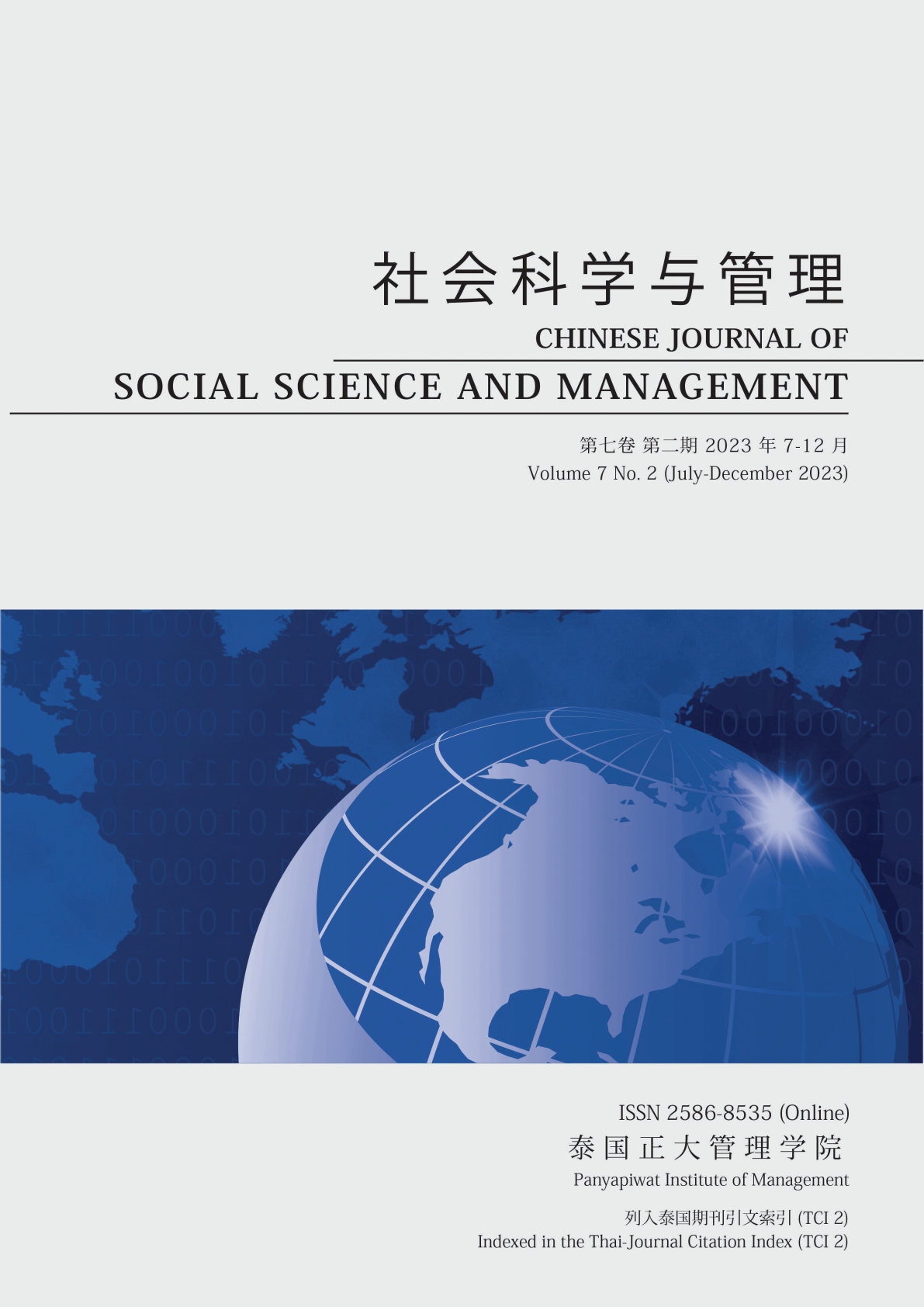THE EFFECT OF ABUSIVE MANAGEMENT ON RECENT COLLEGE GRADUATES’ JOB BURNOUT IN CONSTRUCTION INDUSTRY WITH ORGANIZATIONAL JUSTICE AS MEDIATOR
Main Article Content
Abstract
To investigate the status quo of the perception of abusive management and job burnout among college graduates starting work in the construction industry, as well as the mediating role of organizational justice between abusive management and job burnout and various dimensions, an abusive management scale, an organizational justice perception scale and a job burnout scale were used to survey 445 entry-level college graduates working in the construction industry. The reliability and validity tests, correlation analysis, and mediation effect test of the survey data show that: (1) abusive management can significantly and positively predict job burnout and its three dimensions, (2) abusive management can significantly negatively predict job burnout, (3) organizational justice can significantly and negatively predict job burnout and its three dimensions, and (4) organizational justice plays a completely mediating role between abusive management and job burnout. Abuse management can effectively alleviate the job burnout of college graduates at the beginning of their employment through organizational justice, which has a specific referential value for human resources training departments.
Article Details

This work is licensed under a Creative Commons Attribution-NonCommercial-NoDerivatives 4.0 International License.
Chinese Journal of Social Science and Management Editorial Division
The Office of Research and Development, Panyapiwat Institute of Management
85/1 Moo 2, Chaengwattana Rd., Bang Talat, Pakkred, Nonthaburi 11120, Thailand
Tel. 02 855 01048 E-mail: cjssm@pim.ac.th
References
Adams, J. S. (1965). Inequity in social exchange. Advancess in Experimental Social Psychology, (2), 12-16. Freudenberger, H. J. (1974). Staff burnout. Journal of Social Issues, (1), 159-165.
Hobfoll, S. E. (1989). Conservation of resources; A new attempt at con-ceptualizing stress. American Psychologist, (44), 513-524.
Lei, Y. F. (2021). Research on the impact of organizational fairness on burnout of grassroots police [Master’s thesis]. Shandong University. [in Chinese]
Li, C. P., & Shi, K. (2003). The effects of distributive justice and procedural justice on job burnout. Acta Psychologica Sinica, (5), 677-684.
Li, N. Q., & Yi, X. N. (2010). An empirical study on the relationship between organizational justice, abusive management and employee job burnout. Science and Technology and Management, 12(4), 46-49. [in Chinese]
Li, P. (2017). The problem of employee burnout in textile enterprises. Economic Research Guide, (27), 14-70. [in Chinese]
Lin, P., Chen, Z. G., & Zhong, J. A. (2006). A literature review of organizational justice and future research directions. Psychological Science, (4), 1016-1018. [in Chinese]
Liu, N., Liu, Q., & Zhang, Y. L. (2018). Mediating effect of organizational fairness on moderating patterns and nurse burnout. Journal of Nursing Management, (9), 614-617. [in Chinese]
Liu, X. (2016). “Case”: Research on perceived abuse management of initial management trainees of company H [Master’s thesis]. Jinan University. [in Chinese]
Liu, Y., Long, L. R., & Li, Y. (2003). The impact of organizational justice on organizational effectiveness variables. Management World, (3), 126-132. [in Chinese]
Peng, X. F. (2007). It is very important to adjust the mentality when you first enter the workplace. Journal of Hubei Radio and Television University, (5), 39-40. [in Chinese]
Seibert, S. (1997). The effectiveness of facilitated mentoring: A longitudinal quasi-experiment. Journal of Occupational and Organizational Psychology, (70), 162-172. [in Chinese]
Sun, H. P. (2021). A study on the influence of abusive management on the turnover intention of the new generation of employees-based on the moderating effect of emotion management. Xuehai, (4), 160-165. [in Chinese]
Tan, Y. L. (2005). Research on the development model of new employees’ work adaptation in enterprises [Master’s thesis]. Huazhong University of Science and Technology. [in Chinese]
Tepper, B. J. (2000). Consequences of abusive supervision. Academy of Management Journal, 43(2), 178-190. [in Chinese]
Tepper, B. J., Simon, L., & Park, H. H. (2017). Abusive supervision. Annual Review of Organizational Psychology and Organizational Behaviour, 4(1), 123-152. [in Chinese]
Tian, J. H., Kong, Y. P., & Chen, Y. W. (1997). Analysison the status quoof human resource seibert, the effectiveness of facilitated mentoring: A longitudinal quasi-experiment. Journal of Occupational and Organizational Psychology, (70), 162-172.[In Chinese]
Wang, C. (2014). Research on the influence mechanism of sales personnel’s self-monitoring personality on job burnout [Master’s thesis]. Southwestern University of Finance and Economics. [in Chinese]
Wang, S. Q., & Li, X. C. (2022). Research on the perception of reality shock of college graduates from the perspective of organizational socialization. Journal of Weifang Engineering Vocational College, (5), 70-75. [in Chinese]
Wang, X. T., (2016). Urbanand rural studentsand college graduates’ first-time employment opportunities. Southern Population, 135(3), 10-20. [in Chinese]
Wen, X. L., & Chen, C. H. (2013). A review of research on influencing factors of abusive management. Leadership Science, (26), 13-15. [in Chinese]
Wu, X. C., Qi, Y. J., Yu, R. G., & Zang, W. W. (2016). Further revision of primary and secondary school teachers’ job burnout questionnaire. Chinese Journal of Clinical Psychology, 24(5), 856-860. [in Chinese]
Zeng, C. K., & Shi, K. (2007). The relationship between the big five personality factors and job burnout of enterprise employees. Chinese Journal of Clinical Psychology, (6), 614-616. [in Chinese]
Zhang, J. W., & Xu, W. M. (2020). Research on the Relationship between abuse management and workplace deviant behavior: Based on organizational fairness and narcissism. China Business Review, (7), 235-239. [in Chinese]
Zheng, J. (2007). Analysis of the unsuitable phenomenon of college graduates in the early stage of employment. Modern Management Science, (1), 98-100. [in Chinese]


